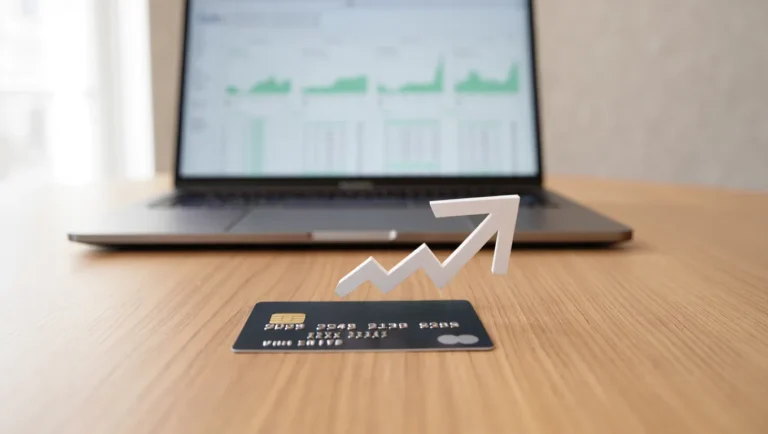Full Comparison
| Issuer | Inquiry Type | How to Request | Notes |
|---|---|---|---|
| American Express | Soft Pull | Online via Account Services or phone | Amex uses soft inquiries for most requests; if you decline an automatic increase and ask for more, you may be asked to consent to a hard pull. |
| Bank of America | Soft Pull | Online (look for a “Credit line increase” link) or phone | Eligible accounts see a link in the online dashboard. BofA typically doesn’t perform hard inquiries for credit-line increases. |
| Capital One | Soft Pull | Online under “Card Services” or by calling | Requests normally involve only a soft pull. Have information on income and housing costs ready. |
| Discover | Soft Pull | Online (Account Center > Manage > Credit Line Increase) or phone | Discover often grants the first offer after a soft pull; a larger request may require your consent for a hard inquiry. |
| Wells Fargo | Soft Pull | Phone only | Representatives start with a soft inquiry. If a hard pull is required, they’ll ask you before proceeding. |
| Citi | Varies | Online or phone | Citi may grant a small increase via soft pull; a larger amount might trigger a hard inquiry. |
| Chase | Hard Pull | Phone only | Most credit-line increase requests require a hard inquiry. Some targeted offers may avoid a hard pull, but it varies. |
| Barclays | Hard Pull | Online or phone | Barclays typically performs a hard inquiry for requests, though automatic increases are soft inquiries. |
Category Winners
Best Soft-Pull Option: American Express
American Express stands out because it rarely requires a hard inquiry for a credit-limit increase. Both customer-initiated requests and automatic reviews rely on soft pulls, so your credit score remains untouched. You can request an increase online or by phone, and Amex even doubles some limits when income and payment history support it. Just be mindful that asking for more than the pre-approved amount may require consent for a hard pull.
Best for Ease of Use: Capital One
Capital One makes it simple to request a higher limit through its online portal. Cardholders usually experience a soft pull, and the bank emphasises transparency: you’ll be asked for your annual income, employment status and housing costs. Because of its straightforward process and generous automatic increases, Capital One is ideal for cardholders who want a quick boost without the hassle of a phone call.
Best for Established Relationships: Bank of America
If you bank with Bank of America, its credit-line increase process is among the most predictable. Eligible customers see a “Credit line increase” link in their online accounts, and the bank typically relies on a soft inquiry. Having a long history with the bank and a healthy checking or savings balance can improve your chances of approval. For large increases, call a representative to discuss your needs.
Best for Cautious Borrowers: Wells Fargo
Wells Fargo’s manual approach suits people who want to control whether a hard inquiry happens. When you call, a representative first completes a soft pull; if the requested increase is large, they ask your permission before any hard inquiry. This human-centred process gives you the chance to back out and avoid potential credit-score damage.
Realistic Math Examples
Credit scoring models weigh your credit utilization ratio—the percentage of your available credit you’re using—heavily. Keeping that ratio low is key to maintaining a healthy score. These three scenarios illustrate how a larger credit limit can improve or hurt your utilization. To learn more, read our full guide on managing your credit utilization.
Scenario A: Doubling Your Limit
You have a credit card with a $1,000 limit and carry a $300 balance. Your utilization is 30 %. If the issuer approves a limit increase to $2,000 via a soft pull, your $300 balance represents just 15 % of available credit. This dramatic drop can boost your score, provided you don’t increase your spending.
Scenario B: Moderate Increase
A cardholder with a $5,000 limit and a $2,500 balance (50 % utilization) requests a $7,000 limit. Assuming a soft pull, the same $2,500 balance now represents about 35.7 % of available credit. The improvement is meaningful but not as large as in Scenario A, highlighting why seeking a generous limit increase can have a bigger impact.
Scenario C: Overspending Risk
With a $2,500 limit, you routinely spend $2,250—90 % utilization. You ask for a bump to $3,000, but then max out the card at $3,000. Even if your issuer grants the increase via a soft pull, your utilization jumps to 100 %, which will hurt your score. This example underscores that a higher limit doesn’t help if your spending grows along with it.
Note: these examples assume you maintain the same balance after receiving a higher limit. If you increase spending, your utilization ratio may not improve and could even get worse.
Gotchas You Shouldn’t Ignore
- Don’t fall into the overspending trap. A higher limit can tempt you to spend more; if your balance rises, your utilization ratio could climb and hurt your score.
- Minimize hard inquiries. Requesting multiple increases or new credit cards in a short period can lead to several hard pulls, which collectively may lower your score; avoid applying for too many credit products at once.
- Never miss a payment. According to MyFICO.com, payment history makes up 35 % of your FICO score. One missed payment can undo the benefits of a higher limit.
- Wait after recent changes. Issuers are unlikely to approve increases soon after you open a card or receive a previous increase.
- Verify terms with the issuer. Policies change, and some issuers may switch from soft to hard pulls without notice. Always confirm whether a hard inquiry will occur before finalising your request.
How We Picked
- Inquiry type: We prioritised issuers that typically grant credit-limit increases via soft pulls, preserving your credit score.
- Ease of request: The process matters. Issuers that allow online requests without requiring phone calls or additional paperwork scored higher.
- Account history factors: We considered how each issuer weighs income, payment history and account age.
- Customer control: Issuers that seek permission before a hard inquiry, such as Wells Fargo, earned extra points.
- Transparency: We favoured institutions that clearly communicate whether a request will trigger a hard or soft inquiry, as advised by the Consumer Financial Protection Bureau (CFPB), so you aren’t surprised by a score drop.
FAQs
Does requesting a credit limit increase hurt my credit score?
It depends on whether your issuer performs a soft or hard inquiry. Many issuers use soft pulls for small or routine increases, which don’t impact your credit score. However, some requests lead to a hard inquiry—a full credit check—which may temporarily lower your score by a few points. The effect is generally minor unless you have multiple hard pulls in a short timeframe.
Which credit card issuers allow soft-pull increases?
American Express, Bank of America, Capital One and Discover usually handle credit-limit increases via soft inquiries. Wells Fargo also starts with a soft pull and asks for consent before a hard inquiry. Citi may grant small increases without a hard pull, while Chase and Barclays typically require hard inquiries.
How often can I request a credit limit increase?
Most issuers require you to wait at least six months after opening a card or receiving your last increase. Some limit requests to once every six months, so time your request when your income is up and your credit score has improved.
Should I apply for a new card instead of increasing my limit?
A new card can boost your total available credit and may come with welcome bonuses or promotional rates. However, new applications trigger hard inquiries and lower the average age of your accounts. If your current card suits your needs and you’re eligible for a soft-pull increase, that may be a less disruptive option.
What information do issuers need when I request a higher limit?
Be ready to provide your annual or monthly income, employment status and housing expenses. Some issuers also ask how much you want to increase your limit. As explained by Equifax, accurate information helps lenders evaluate your ability to handle more credit and may improve your chances of approval.







2 comments
Nice answers in return of this matter with firm arguments and telling everything concerning that.
https://www.goodartdesign.com
I do agree with all of the concepts you’ve introducedon your post. They’re really convincing and will definitely work.Nonetheless, the posts are very brief for newbies.May just you please extend them a bit from subsequent time?Thanks for the post.
https://www.kayswell.com